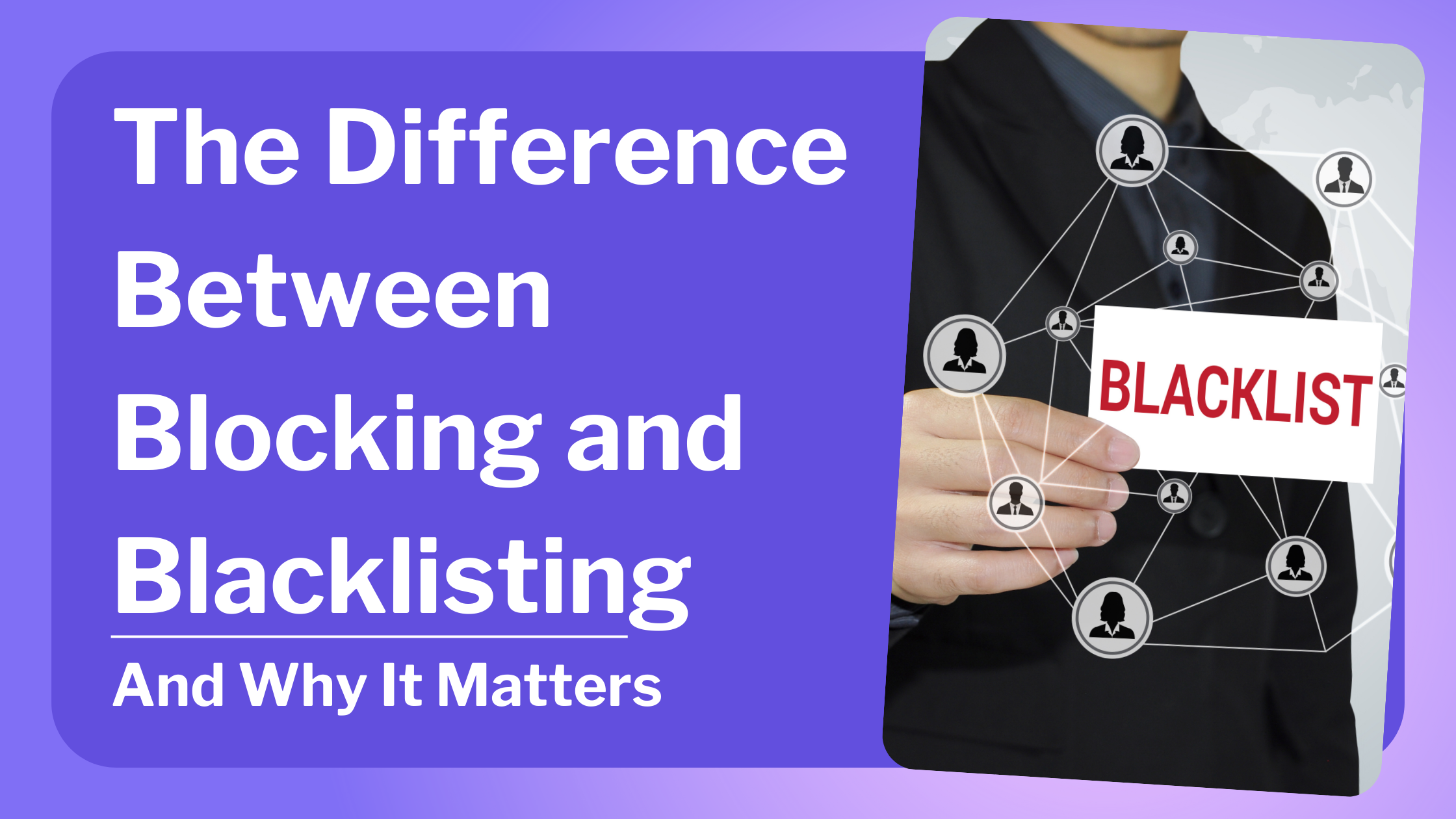
Published 09/10/25
Not All Call Blocks Are Created Equal
You’ve had enough. The unknown numbers, the late-night calls, the spam that slips through. So you hit “Block.” Problem solved, right?
Not exactly.
While blocking a number feels like drawing a line, it’s really just a temporary patch. Persistent callers and harassers have plenty of ways to work around it. That’s why blacklisting exists—and why the distinction between the two matters more than most people realize.
What Does “Blocking” a Number Actually Do?
When you block a number on your phone, you’re telling your device: ignore this specific number from now on.
Sounds good in theory, but here’s the catch:
The block only applies to that exact number
If the caller uses a new line or blocks their caller ID, they slip right through
Many devices don’t notify you of attempted blocked calls, but the caller may still leave voicemails
Blocking is useful—but it’s like locking one door in a house full of entrances.
What Blacklisting Does Differently
Blacklisting takes blocking to the next level. It doesn’t just silence a number—it shuts down a pattern.
With iCaughtYou, blacklisting means:
Repeat offenders are stopped, even if they try again with hidden or alternate numbers
Unknown or “No Caller ID” callers can be blacklisted from the start
Harassers can’t wear you down by sneaking around your blocklist
Think of it as upgrading from a “Do Not Disturb” sign to a full security system.
Why This Difference Matters for Phone Safety
Here’s why blacklisting is essential if you’re serious about boundaries:
Persistence is real
Harassers rarely give up after one block. Blacklisting ensures you don’t have to keep playing digital whack-a-mole.Hidden numbers aren’t harmless
Many bad actors intentionally hide their caller ID. Blacklisting lets you close that loophole.Peace of mind requires permanence
Temporary fixes don’t build lasting confidence. Blacklisting creates the kind of finality that lets you actually relax.
When Blocking Is Enough (and When It Isn’t)
To be fair, not every unwanted call requires blacklisting. Here’s a simple breakdown:
Blocking is enough if:
It’s a one-off spam call
You don’t expect the number to try again
You just want silence without further thought
Blacklisting is essential if:
A caller keeps returning despite being blocked
Calls are coming from hidden or unknown numbers
You feel harassed, unsafe, or emotionally drained
Blocking buys you a moment. Blacklisting gives you back control.
How iCaughtYou Makes Blacklisting Easy
Most phones only offer basic blocking. iCaughtYou fills in the gaps with:
One-tap blacklisting for repeat offenders
Unmasking of hidden and blocked numbers before they hit your blacklist
Organized control over your list, so you always know who’s out for good
Instead of chasing unwanted callers one by one, you silence the noise at its source.
Bottom Line: Don’t Just Block—Blacklist
Blocking a call feels good in the moment. But if you want lasting peace, blacklisting is the smarter move.
iCaughtYou turns your phone into a safe space, giving you permanent protection from the numbers that cross your boundaries.
Take Back Control Now
Stop playing catch-up with blocked numbers. Blacklist smarter with iCaughtYou
Blacklist smarter with iCaughtYou
Further Reading
How to Permanently Stop Repeat Callers – From our blog